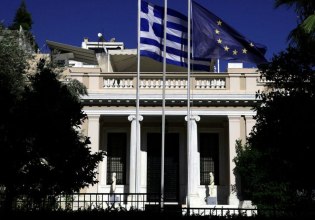Savings: The worst start of the year since capital controls in 2015
In the same period of 2020, before the outbreak of the pandemic and the activation of state support packages, the corresponding figures had increased by almost 4 billion euros
The freezing of the market due to the reduction of consumer spending, for essentials, such as rising prices, but also psychological reasons, reflect the data on the progress of deposits published by the Bank of Greece.
The general trends in March were similar to February, demonstrating the long-term pressure on businesses and households from the beginning of the year. It is noted, however, that in April conditions improved significantly, despite the new rise in inflation.
More specifically, at the end of March, the total deposit base amounted to 176.59 billion euros, down by 951 million euros on a monthly basis, while in the two months of February – March the decline exceeded 1.2 billion euros.
In the first quarter, the outflows reached 3.4 billion euros, which is the worst start since 2015, a period during which individuals and legal entities withdrew their deposits from banks en-masse due to political developments.
In the same period of 2020, before the outbreak of the pandemic and the activation of state support packages, the corresponding figures had increased by almost 4 billion euros, while in 2019 they had decreased by 1.2 billion euros.
Households holding back
The data show a small increase in the balances of natural persons, which reached 188 million euros in March, while if February is taken into account, the increase reaches 284 million euros.
According to banking sources, this development is a result of the reduction of spending by a large percentage of individuals, even those who have adequate means, after the outbreak of war in Ukraine and the new wave of price increases caused by a series of inelastic costs, burdening consumer confidence.
The same circles note that given the shrinking consumption in the period under review, the increase in savings would have been even greater if the electricity and gas bills had not increased excessively.
On the other hand, deposits of non-financial corporations fell by 448 million euros in March, following their decline by 334 million euros in February.
A bank executive estimates that this is due to the significant drop in turnover in most sectors, at a time when costs have risen sharply due to rising energy prices.
Escape from time deposits
On the other hand, the severance of time deposits by individuals continued in March, as interest rates are now at minimum points above 0%, for amounts that can start at 30,000 euros.
In this context, depositors do not renew expired products and either choose other forms of investment or place their money in Savings Accounts.
Indicative of this trend is the fact that the balances of pre-agreed time deposits fell in the first quarter of 2022 by 1.8 billion euros and in the same period in demand products the increase reached 1.50 billion euros.
During the same period, the net inflows in the mutual fund market reached 41 million euros.
- Θεοδωράκης, Χατζιδάκις, Σαββόπουλος, Ξαρχάκος: Ο τιτάνιος Βασίλης Τσιτσάνης με δικά τους λόγια
- Γροιλανδία: «Οι ΗΠΑ συγκέντρωναν κρυφά πληροφορίες για στρατιωτικές εγκαταστάσεις» – Τι εξετάζει η ΕΕ
- Εκτροχιασμός τρένων στην Ισπανία – Αναφορές για νεκρούς και πολλούς τραυματίες
- Ο Αλ-Σάραα κατέλαβε το μεγαλύτερο πετρελαϊκό κοίτασμα των Κούρδων
- Λουτσέσκου: «Αγαπώ τη νοοτροπία του Ζαφείρη, φανταστικός ο Χατσίδης»
- Έρχονται επιδόματα των 300 και 750 ευρώ – Δικαιούχοι και κριτήρια




















